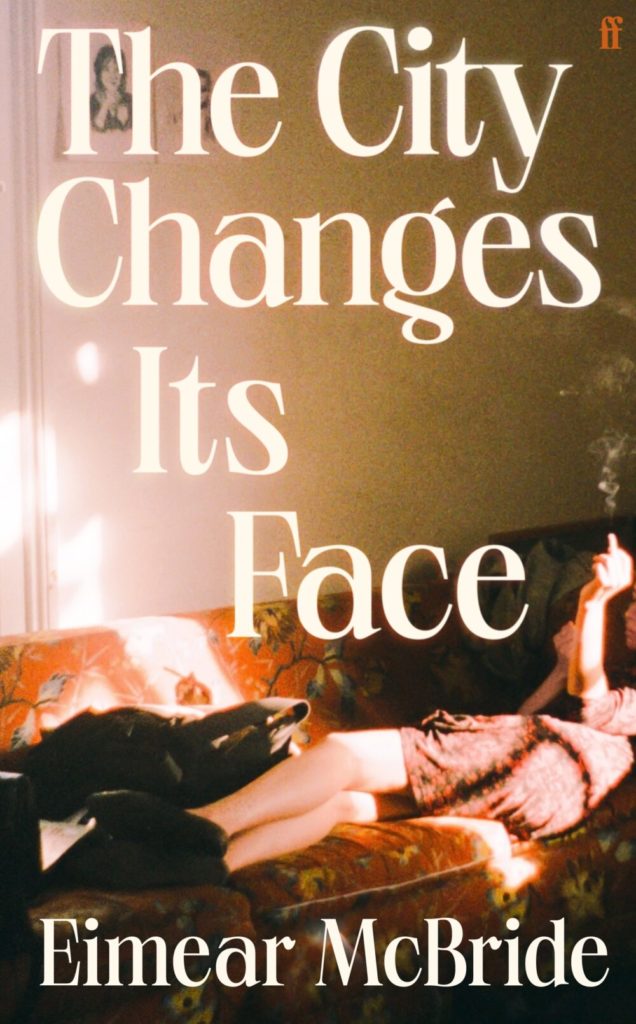IN one of the most scathing contemporary assessments of James Joyce’s ‘Ulysses’ – for it was by no means received with the kind of presupposed universal acclaim it enjoys today – Virginia Woolf described the book as ‘egotistic, insistent, raw, striking, and ultimately nauseating’.
Woolf’s rejection of Joyce’s work as the ramblings of ‘a queasy undergraduate scratching his pimples’ is instructive, since beneath her evident snobbery lies an astute, well-formulated, potentially self-deprecating critique about the pitfalls of literary modernism.
What can appear as penetrating for some – that is, seeing the world in a way which is both granular and capacious – for others may seem nothing more than the naval-gazing of a precocious talent without much to say. There has to be a story, if we are to take Woolf at her word, since fiction is as much about escape as it is about the accurate conveyance of reality.
Thankfully for Eimear McBride, her new novel ‘The City Changes its Face’ avoids these trappings deftly. Despite her narrative style tending towards interiority – the protagonist Eilish is something of a shut-in – the stream-of-consciousness McBride imbues her characters with feels expansive, time-dilating, supple and ultimately earned.
The novel picks up from the end of McBride’s second book ‘The Lesser Bohemians’, which follows the travails of twenty year-old Eilish and forty year-old Stephen as they retrace the course of their two year love affair over a single night in Camden in 1996.
Stephen is trying to reconnect with his teenage daughter Grace. Eilish is coming to terms with a world-shattering trauma. Though their conversation is confined to a single night in the couple’s shared flat, the text is often interrupted by Eilish’s calling back to memory for clues about their current predicament.
What this does is situate the domestic as a plausible locus from which the entire world spins out. It is comically grounded by the mundane details of such an environment – a jar of piccalilli, a bookshelf that trembles with the passing of an Underground train – before McBride pulls the paisley-patterned rug out from beneath our feet:
“How I knew, later, after, and convincedly, what shape my life would take by my mid-twenties. How lately’s derailments have put a stop to that and made dank wallows of once hallowed designs. Made hollows in me too till I’m half drill-riddled with unallowable truths.”
What this does is what all great fiction should do; namely, to rearrange time into something experiential rather than sequential. Past encroaches on present as both encroach on the future, and with the unconscious workings of Eilish’s interior monologue, McBride has given us something which blends all three in a way that penetrates through to the raw material of feeling.
If I have any reservations with this approach, it's that Eilish’s deviations occasionally read like self-conscious authorship. Rather than allowing her reader to marinate a bit longer in what Freud calls ‘that which is repressed and not capable of becoming conscious’, McBride opts instead for stylistic flourish.
Subtle gestures become ‘the spareliest of nods’. Nouns become adjectives as McBride’s fluency with language slips into a tendency for showing off. Contrary to Woolf’s appraisal, this kind of modernism is at its best when it is ‘egotistic, insistent, raw, striking, and ultimately nauseating’. I just wish there was more of the ‘raw’ in McBride’s formulation; more sense of the confusion that comes with unpacking so much psychic debris.
 'The City Changes Its Face' by Eimear McBride is out now from Faber & Faber (£20.00 RRP)
'The City Changes Its Face' by Eimear McBride is out now from Faber & Faber (£20.00 RRP)
